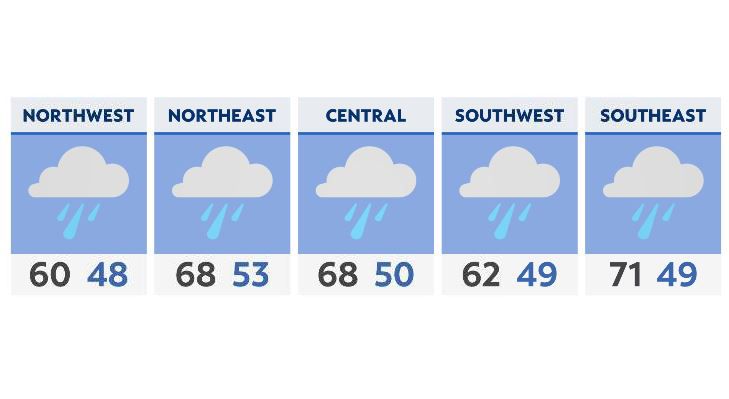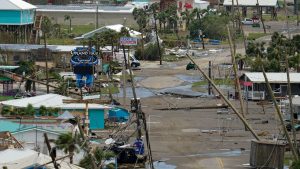Top U.S. national security officials were grilled on the state of the U.S. threat landscape on Tuesday, fielding a series of tough questions on topics ranging from an uptick in malicious cyber activity to the influx of migrants along the U.S.-Mexico border, as well as the current situation in Afghanistan in wake of the United States’ chaotic withdrawal.
Speaking before members of the Senate Homeland Security Committee Tuesday, witnesses – Department of Homeland Security Secretary Alejandro Mayorkas, FBI Director Christopher Wray and U.S. National Counterterrorism Center Director Christine Abizaid – spoke to how threats to the homeland have evolved since the Sept. 11 terrorist attacks.
At times, they also squared off with lawmakers – specifically Republicans – who dug in on issues of immigration and the influx of migrants along the southern border.
In one particularly contentious exchange, Sen. Ron Johnson, R-Wisc., accused Secretary Mayorkas of downplaying what he characterized as a spike in crossings along the U.S.-Mexico border.
After asking Mayorkas rhetorically whether he “honestly believed” the U.S.-Mexico border is closed to migrants, Johnson doubled down on his criticism, accusing the Mayorkas of failing to provide “basic information” about the number of migrants that have been returned to Mexico or detained in the U.S. since President Biden took office.
“Out of the 1.3 million people we’ve apprehended, how many people have been returned, how many people are being detained, and how many people have been dispersed?” Johnson said. “And I want some numbers here.”
Mayorkas replied that he did not have the information now, but said he “would be pleased to provide” the Wisconsin lawmaker with those figures.
The White House has also faced condemnation from Democrats for its handling of the influx of Haitian migrants at the U.S. southern border, specifically after images taken outside Del Rio, Texas, emerged of Border Patrol agents on horseback, appearing to try and push back Haitian people with whip-like cords. Mayorkas and the White House have expressed horror and outrage at the images, and have pledged a full investigation into the matter.
Senate Majority Leader Chuck Schumer said images of the treatment of the migrants “turn your stomach” and called on the administration to discontinue the “hateful and xenophobic” policies of Biden’s predecessor, Donald Trump.
House Homeland Security Chairman Rep. Bennie Thompson, D-Miss., described the images and video as “horrific and disturbing” and called on Mayorkas to “take immediate action to hold those responsible accountable.”
In a Twitter post, Rep. Alexandria Ocasio-Cortez, D-N.Y., called the images “a stain on our country.”
“It doesn’t matter if a Democrat or Republican is President, our immigration system is designed for cruelty towards and dehumanization of immigrants,” she said, adding: “Immigration should not be a crime.”
Asked about the footage Tuesday, Mayorkas said the images had been “uppermost in my mind” since he saw them. “I was horrified to see the images, and we look forward to learning the facts that are adduced from the investigation, and we will take actions that those facts compel,” he said. “We do not tolerate any mistreatment or abuse of a migrant. Period.”
The number of Haitians attempting to enter the U.S. has increased dramatically in recent weeks following the July presidential assassination and a massive earthquake last month, overwhelming U.S. capacity.
Securing the border “is an ongoing process,” Mayorkas said Tuesday, adding that DHS is currently executing on the mission. “I by no means diminish the, the humane issue that it presents, but I want to be clear that we do have a plan to address it.”
“We are not finished in the execution of our plan yet, and I never suggested otherwise,” he added.
The panel also addressed concerns about Afghanistan following the chaotic U.S. withdrawal last month, including questions regarding counterterrorism efforts in Kabul, as well as the vetting process for incoming Afghan refugees.
The U.S. has degraded terrorist threats over the past 20 years by “removing key leaders and sustaining pressure” against terrorist organizations – including blocking communications and their ability to move money, said Christine Abizaid, director of the U.S. National Counterterrorism Center. “Since the U.S. withdrawal, we have continued to closely monitor for any signs of terrorist plotting that targets the U.S. or our interests abroad,” she said.
Even so, Abizaid said, “ISIS and al-Qaida both have branches and affiliates in Afghanistan that will require [counterterrorism] vigilance, especially in light of recent developments there.”
“Over the longer term, we suspect these groups could try to take advantage of reduced counterterrorism pressure and a relatively more permissive operating environment to rebuild their capacity to carry out attacks against Western targets.”
Asked about thousands of incoming evacuees, Wray said the FBI is working in tandem with more than 200 joint terrorism task forces and local agencies to help resettle Afghans, monitor potential threats, and “get in front of any radicalization” of evacuees.
“We do have a robust screening and vetting process, in addition to expertise both in the transit countries and here domestically, to ensure the safety and security of the American people,” Mayorkas assured the committee. He added, “We have not relaxed our vigilance over the years.”




